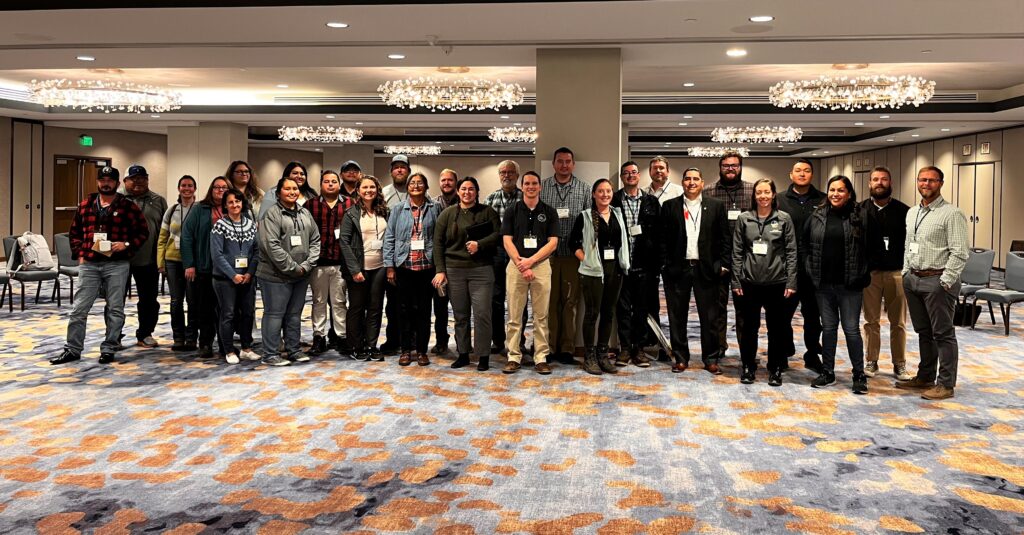NEIWPCC hosted a four-day National Nonpoint Source (NPS) Training Workshop in Minneapolis in November. The event brought together more than 300 federal, state, tribal, territorial, and other NPS program practitioners involved with activities under Section 319 of the Clean Water Act. Last held in-person in 2018, the workshop provided a forum for discussion and coordination with colleagues from across the country.
The workshop began with opening remarks from Richard Friesner, director of Water Quality Programs at NEIWPCC, and Brian Frazer, director of the EPA’s Office of Wetlands, Oceans and Watersheds. In each of their remarks they emphasized the success and the importance of the work accomplished under Section 319 – state and tribal nonpoint source management programs. Friesner recounted filling his water bottle from a stream fed by NPS runoff during a recent backpacking trip, and how tremendously important the 319 Program is to safeguarding these waters. Frazer spoke about the updated state program guidance draft that was recently released for public input, and the forthcoming similar guidance for tribal programs.

Their introduction was followed by a session on multilevel agency coordination, moderated by Mike Scozzafava, branch chief and national program manager of Nonpoint Source Management at the U.S. EPA. The panel included Maureen Pepper, state water quality specialist in Idaho for the USDA-Natural Resources Conservation Service, Scott Satterthwaite, environmental specialist with the Kansas Department of Health and Environment, and John Mathews, manager of Stormwater Technical Assistance at the Ohio Environmental Protection Agency. The trio spoke about the importance of fostering collaborative efforts with organizations and agencies within one’s state, and the power of joint endeavors in achieving common goals.
The poster session featured research findings and innovative programs, and provided a platform for attendees to exchange insights, establish connections, and share knowledge from across the country. Poster topics covered a wide range of topics, including bioretention, the Gulf of Mexico Hypoxia Task Force, social media messages about conservation that resonate with farmers, and engaging communities around drinking water through art.
In addition to the poster session, the agenda included interactive workshops, expert panel presentations, networking opportunities, and social events such as water trivia. Additionally, attendees could join a field trip to the “We are Water MN” exhibit that examines water issues at a state and local level through personal stories, histories, and scientific information.

Over the course of the four days, environmental justice, updates to Section 319 guidelines, coastal NPS management, tribal programs, and responses to climate change emerged as key topics. Throughout the workshop, professionals from diverse backgrounds shared best practices, innovative approaches, success stories, and lessons learned in NPS management. The event offered an exploration of collaborative strategies, emphasizing the interconnectedness of agencies, communities, and states working with Section 319 of the Clean Water Act.
The agenda and recordings of the presentations are available on the workshop webpage.